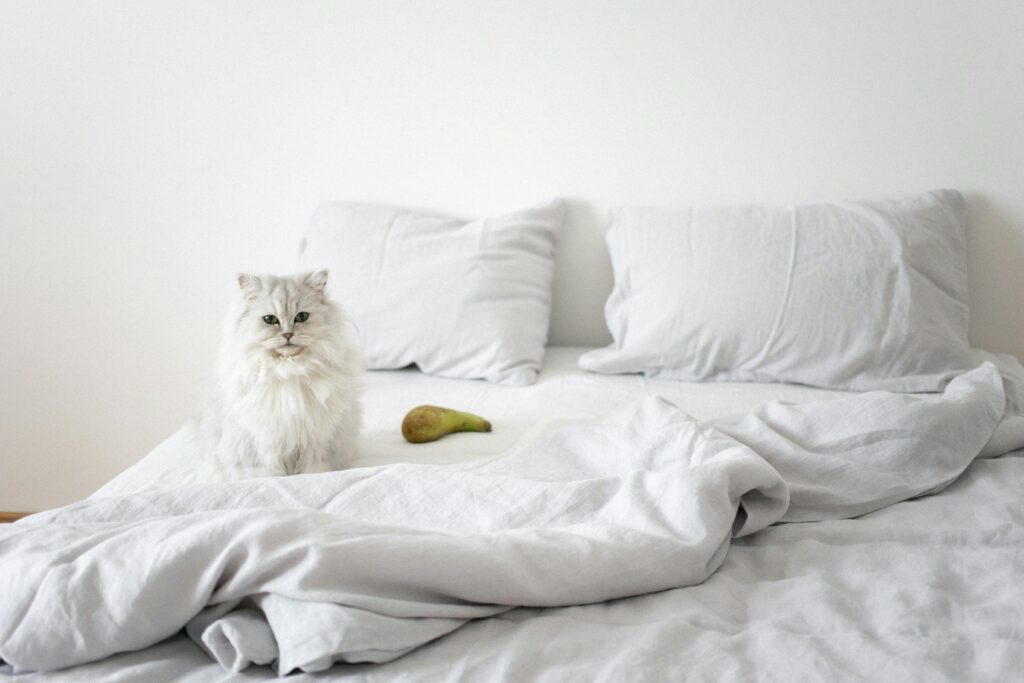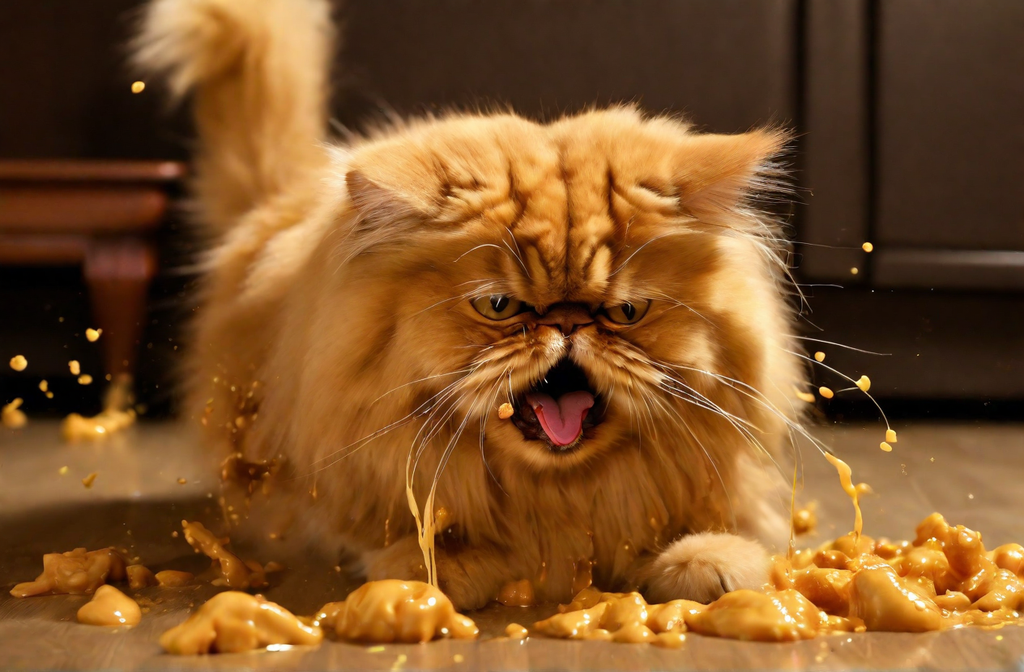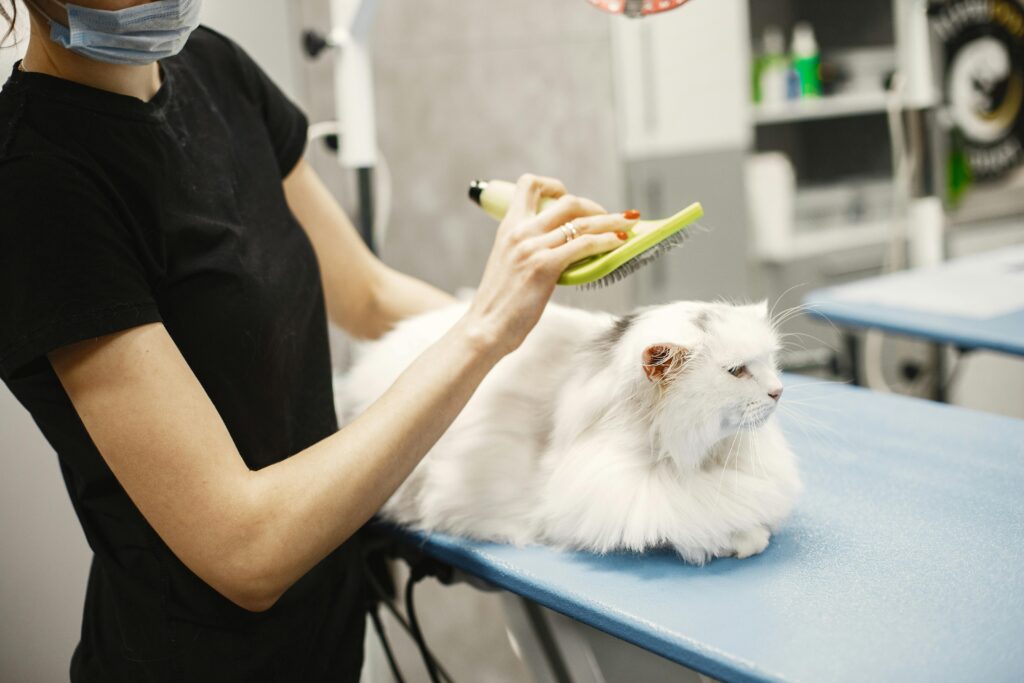As a cat parent, you want to ensure that your furry friend is happy and healthy. One common issue that many cats face is hairballs. Hairballs are formed when cats groom themselves and swallow loose hair, which then accumulates in their digestive system. While occasional hairballs are normal, frequent or severe hairballs can be uncomfortable for your cat and may require intervention. In this blog post, we will discuss cat hairball remedies, treatments, and foods that can help your cat overcome this issue.
Understanding Hairballs
Before we dive into the remedies and treatments, let’s first understand why hairballs occur. Cats are meticulous groomers and spend a significant amount of time cleaning their fur. While grooming, they ingest loose hair, which usually passes through their digestive system without any issues. However, sometimes the hair accumulates in the stomach and forms a hairball. This can happen more frequently in long-haired breeds or during shedding seasons.
When a hairball forms, your cat may experience symptoms such as coughing, gagging, or hacking as they try to expel the hairball. In most cases, the hairball will eventually be vomited out. However, in some instances, the hairball may get stuck in the digestive tract, leading to more serious complications. It’s important to take preventive measures and provide your cat with the necessary remedies and treatments to help them overcome hairballs.
Cat Hairball Remedy
There are several cat hairball remedies available that can help prevent the formation of hairballs or aid in their passage through the digestive system. Here are some effective remedies:
1. Regular Brushing
One of the simplest and most effective ways to prevent hairballs is through regular brushing. By brushing your cat’s fur, you can remove loose and dead hair before they have a chance to be ingested. Choose a brush that is suitable for your cat’s coat type and make it a part of your grooming routine. Not only will this help prevent hairballs, but it will also keep your cat’s fur clean and healthy.
2. Hairball Control Cat Food
Another option to consider is feeding your cat hairball control cat food. These specialized formulas are designed to promote healthy digestion and reduce the formation of hairballs. Look for cat food that contains a high amount of fiber, as this can help move hair through the digestive system. Additionally, some hairball control cat foods contain ingredients that help lubricate the digestive tract, making it easier for hairballs to pass.
3. Increased Water Intake
Encouraging your cat to drink more water can also help prevent hairballs. Adequate hydration is essential for maintaining a healthy digestive system. Dry food diets can contribute to dehydration, so consider incorporating wet food or adding water to your cat’s meals. You can also provide a water fountain or multiple water bowls in different locations to encourage your cat to drink more.
4. Cat Hairball Treatments
If your cat is prone to frequent hairballs, you may consider using cat hairball treatments. These treatments come in various forms, such as gels or pastes, and are usually flavored to make them more appealing to cats. Cat hairball treatments work by lubricating the digestive tract, making it easier for hairballs to pass through. Consult your veterinarian for recommendations on the most suitable hairball treatment for your cat.
FAQs About Cat Hairballs
In this section, we will address some frequently asked questions about cat hairballs to provide you with a better understanding of this common issue.
1. Are hairballs dangerous for cats?
Hairballs can be uncomfortable for cats, but they are usually not dangerous. However, if your cat is unable to expel a hairball or shows signs of distress, it’s important to seek veterinary attention.
2. How often do cats get hairballs?
The frequency of hairballs varies from cat to cat. Some cats may rarely experience hairballs, while others may have them more frequently. Long-haired cats and those that groom excessively are more prone to hairballs.
3. Can hairballs cause blockages?
In rare cases, hairballs can cause blockages in the digestive tract. If your cat shows signs of a blockage, such as vomiting, loss of appetite, or constipation, contact your veterinarian immediately.
4. Can hairballs be prevented?
While you cannot completely prevent hairballs, you can take steps to reduce their frequency. Regular brushing, hairball control cat food, and increased water intake can help minimize the formation of hairballs.
5. Do hairball control cat foods really work?
Hairball control cat foods can be effective in reducing hairball formation. However, it’s important to choose a high-quality brand that suits your cat’s dietary needs. Consult your veterinarian for recommendations.
6. Can hairballs be a sign of an underlying health issue?
In some cases, frequent hairballs can indicate an underlying health issue, such as gastrointestinal problems or allergies. If you notice a sudden increase in hairballs or any other concerning symptoms, consult your veterinarian.
7. Are there any natural remedies for hairballs?
Some cat owners prefer to use natural remedies to help prevent hairballs. These may include adding fiber-rich ingredients to your cat’s diet, such as pumpkin or psyllium husk. However, it’s important to consult your veterinarian before introducing any new supplements or remedies.
8. Can stress contribute to hairballs?
Stress can contribute to excessive grooming, which in turn can lead to more hairballs. If you suspect that stress may be a factor, try to identify and address the source of stress in your cat’s environment.
9. Can hairballs be a sign of an underlying food allergy?
Food allergies can cause gastrointestinal issues in cats, which may manifest as increased hairballs. If you suspect a food allergy, consult your veterinarian to determine the best course of action.
10. Can certain cat breeds be more prone to hairballs?
Long-haired cat breeds, such as Persians or Maine Coons, are more prone to hairballs due to their dense fur. However, hairballs can occur in cats of any breed.
11. Can hairball treatments be used as a preventive measure?
Hairball treatments are typically used to aid in the passage of hairballs rather than as a preventive measure. However, some cat owners may choose to use them regularly to minimize the occurrence of hairballs.
12. Are there any side effects of hairball treatments?
Hairball treatments are generally safe for cats when used as directed. However, some cats may experience mild digestive upset or allergic reactions to certain ingredients. If you notice any adverse effects, discontinue use and consult your veterinarian.
13. Can hairballs be surgically removed?
In severe cases where a hairball causes a blockage, surgical removal may be necessary. However, this is a last resort and is typically only done if other treatments have failed.
14. Can hairballs be mistaken for other health issues?
Hairballs can sometimes be mistaken for other health issues, such as respiratory infections or gastrointestinal obstructions. If you are unsure about the cause of your cat’s symptoms, it’s best to consult your veterinarian for an accurate diagnosis.
15. Can hairball issues be more common in older cats?
As cats age, their grooming habits may change, leading to more frequent hairballs. Additionally, older cats may have decreased mobility, making it harder for them to groom themselves effectively.
16. Can hairballs be prevented in multi-cat households?
In multi-cat households, it’s important to provide each cat with their own resources, including food, water, and litter boxes. This can help reduce stress and minimize the chances of excessive grooming and hairball formation.
17. Can a hairball cause a cat to stop eating?
In some cases, a large hairball may cause discomfort and loss of appetite in cats. If your cat refuses to eat or shows signs of distress, seek veterinary attention.
18. Can hairballs be more common during certain seasons?
Hairballs may be more common during shedding seasons when cats are losing more fur. Regular brushing during these times can help minimize hairball formation.
19. Can hairballs be a sign of a grooming issue?
Excessive hairballs can sometimes indicate a grooming issue, such as skin problems or joint pain that prevents cats from grooming themselves properly. If you notice a sudden increase in hairballs, consult your veterinarian for a thorough examination.
20. Can hairballs cause weight loss in cats?
Hairballs themselves do not directly cause weight loss in cats. However, if a hairball causes a blockage or leads to decreased appetite, weight loss may occur. It’s important to monitor your cat’s weight and seek veterinary attention if you notice any significant changes.
By understanding the causes of hairballs and implementing preventive measures, you can help your cat overcome this common issue. Regular grooming, hairball control cat food, and providing adequate hydration are all essential in ensuring your cat’s well-being. If you have any concerns or notice any changes in your cat’s health, always consult your veterinarian for proper guidance and advice.
Also Read:
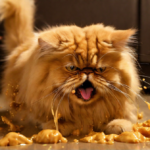 My Cat Is Vomiting : Know The Reasons & What To Do
My Cat Is Vomiting : Know The Reasons & What To Do
 Home Remedies For Cat UTI Suggested By Vets
Home Remedies For Cat UTI Suggested By Vets
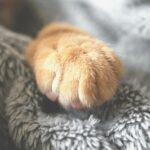 Declawing Versus Soft Paws – Which One Should You Choose And Why
Declawing Versus Soft Paws – Which One Should You Choose And Why
 The Basics of Brushing Your Cat’s Coat: Tips for Maintaining a Healthy and Beautiful Coat
The Basics of Brushing Your Cat’s Coat: Tips for Maintaining a Healthy and Beautiful Coat
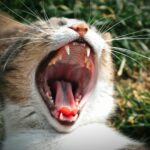 How To Clean Your Cat’s Teeth – An Expert Guide
How To Clean Your Cat’s Teeth – An Expert Guide
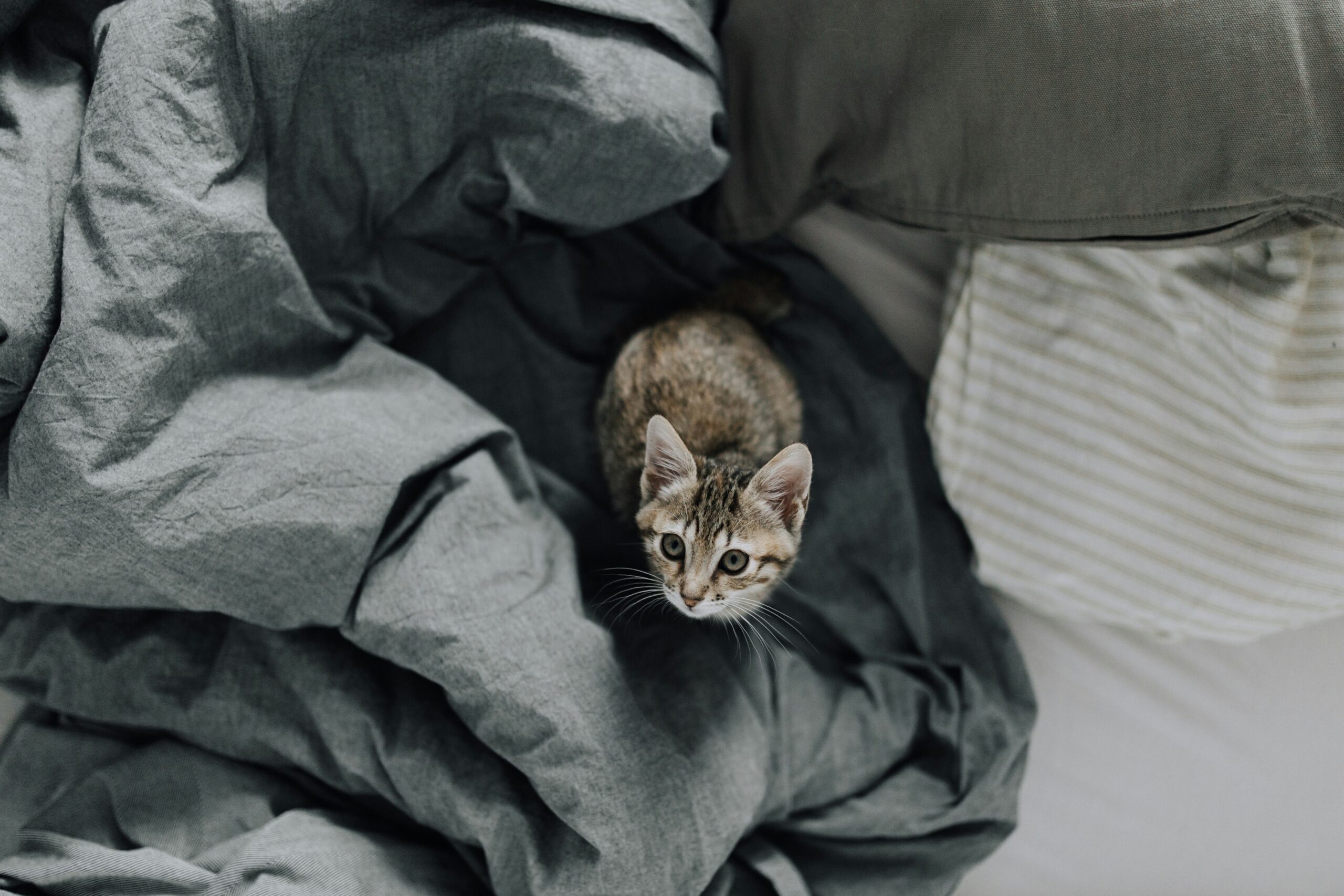 Indoor Cat Enrichment: Keeping Your Feline Friend Happy and Engaged
Indoor Cat Enrichment: Keeping Your Feline Friend Happy and Engaged

